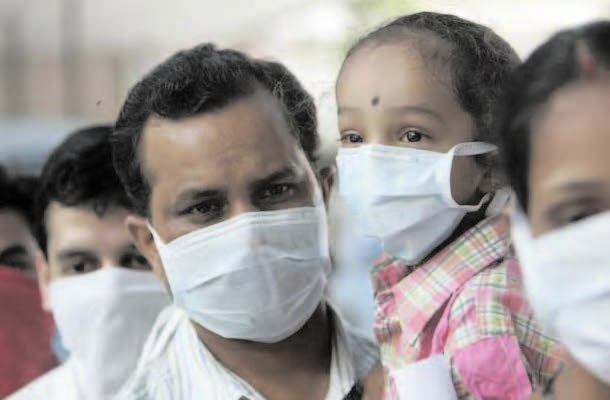
Born on the 4th of December in 1919, in the district headquarter town of Jhelum in the then Rawalpindi division of pre-1947 united Punjab, former Prime Minister of India Shri Inder Kumar Gujral died just four days short of turning ninety three on October 30, 2012.
Throughout his long eventful life, he remained a very decent and gentle human being. He never ruffled any feathers. His father Avtar Narain Gujral, a freedom fighter, and mother Pushpa Gujral were both very suave and soft spoken individuals and social workers. Academically Inder Kumar Gujral was a very bright student. He completed his education up to 10th standard from his native place Jhelum. For his college education he moved to Punjab’s capital of Lahore, from where he graduated in arts.
While studying in Lahore, he inculcated love and affinity for Urdu/Persian as a language and developed special interest in Urdu poetry and became an ardent listener of “Ghazals. He especially liked the voices of Kundan Lal Saigal, Mallika Pukhraj, Mehdi Hassan and Begum Akhtar.While studying in Lahore, he came in contact with some freedom fighters and some left leaning student activists. He was always considerate towards the poor and the under privileged and this tendency brought him into the fold of the Communist Party of India for some time.
In 1947, India attained its hard fought independence from the British Raj, which resulted in painful partition of the province of Punjab. Ugly riots of unseen dimensions erupted thereafter and a lot of humanity was massacred for no reason or rhyme. Inder Kumar Gujral’s parents entered India through the bloody Lahore – Amritsar corridor and finally settled in Jalandhar, but Inder Kumar Gujral himself, along with his wife traveled all the way to Karachi, from where they sailed to Bombay. From Bombay they came by train to New Delhi, where they virtually starved at the railway station for three days and nights.
Eventually Inder Kumar Gujral settled in New Delhi, but maintained a strong bond with his parental place of residence in Jalandhar. Mrs. Indira Gandhi liked Mr. Gujral’s uncommon humility and intellectual brilliance. She made him the union minister for information and broadcasting during early nineteen seventies. As a minister Mr. Gujral strengthened the Urdu Service of All India Radio with high powered medium-wave transmitters located at Rajkot and Jalandhar. He streamlined all the language services to the neighboring countries like Pakistan, Bangladesh, Tibet, China, Afghanistan, the Middle-East and Iran.
He was also instrumental in taking first steps towards expansion of government owned television services in several important areas away from New Delhi. Under his able stewardship, government television was successfully introduced in Bombay, Amritsar and Srinagar and several other projects all over India were planned, which included the establishment of a modern television studio complex for the state of Punjab in Jalandhar. After the promulgation of national internal emergency in 1975, Mrs. Indira Gandhi took away the portfolio of information and broadcasting from I.K. Gujral.
She sent him to Moscow as India’s Ambassador to the Soviet Union. This was a very important assignment. His stay in Moscow was instrumental in furtherance of Indo-Soviet cooperation. When Mrs. Indira Gandhi lost power in the general elections of 1977, her successor Morarji Desai did not replace him and kept him in his Moscow assignment throughout his own two year long tenure. After P.V. Narsimha Rao’s scandal ridden five year tenure was over in 1996, the Congress was badly defeated.
Even the main opposition the Bharatiya Janata Party could not win enough seats to form a government on its own. At that time a coalition government under the banner of united front government headed by Deve Gowda of Karnataka was formed in New Delhi. It was supported by the Congress from outside. Mr. Gujral served as the Union Minister of External Affairs of India.
Within ten months the patience of Congress ran out and Dewe Gouda was shown the door. He was replaced by his most gentle foreign minister, a suave and humble parliamentarian Inder Kumar Gujral. During his scandal free but not too long prime ministerial tenure in 1997, Mr. Gujral improved India’s relations with all the neighboring countries including Pakistan, China and Bangladesh.
Unfortunately his term was also abruptly cut short. As the Prime Minister I.K. Gujral did a lot for Punjab. He wrote off entire loan obtained by the Government of Punjab to fight militancy during the eighties and nineties. He strengthened the broadcasting services in Punjab by strengthening the existing medium-wave transmitters with high powered ones. He wanted to establish an international airport in Punjab, which could serve the needs of the Punjabi diaspora spread all over the world.
His desire was to establish this airport on the Jalandhar – Kapurthala Highway. But land was too expensive in that area. Eventually he agreed to let the existing Rajah Sansi Airport on the outskirts of Amritsar to be upgraded to an international airport. For Jalandhar, however he did a lot. As prime minister he took personal interest to sanction money for a lot of road over rail bridges.
In Kapurthala, he sanctioned the establishment of an ultra-modern high tech science city, which is now the biggest tourist attraction of Kapurthala and the Bist Doab region.
For the past few months in 2012, he was not keeping good health. When he breathed his last on Friday November 30, the entire nation was plunged into mourning for a departed gentle statesman. A seven day mourning has been ordered by the Government of India.
During this periods, the national flag of India will fly all over the world at half mast.We salute Inder Kumar Gujral for what he was and what he stood for.





Be the first to comment